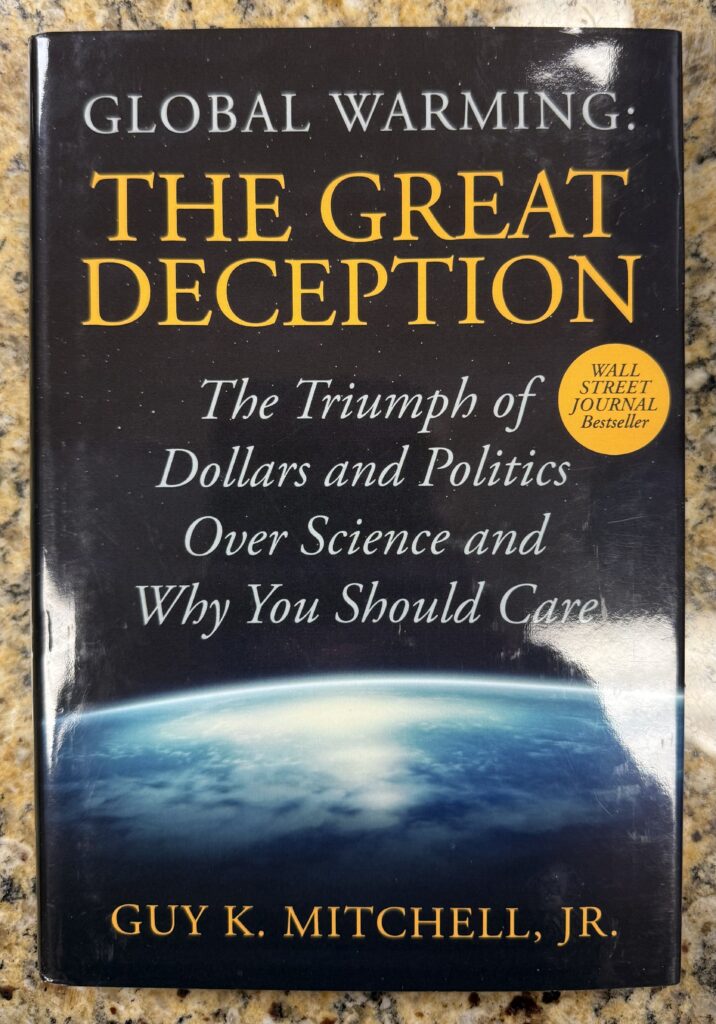

By: Guy K. Mitchell Jr.
This book takes aim at the broad agreement on human-driven climate change and argues that the alarm stems less from science and more from financial and political incentives. Mitchell, blending business insight with analytical thinking, challenges mainstream environmental claims and pushes readers to question the motivations behind current climate policy.
Content & Structure
Framed as a detailed rebuttal to what’s commonly called the anthropogenic global warming hypothesis, the book is structured to dissect the economic and political interests that Mitchell believes are behind the widespread acceptance of climate change theory. The chapters alternate between examining scientific assertions and exposing the personal, corporate, and institutional gains he claims are tied to supporting them.
Writing Style & Approach
Mitchell’s tone is combative and assured—blending a businessman’s pragmatism with a quasi-scientific lens. He mixes commentary on research methods with critiques of global institutions, aiming to undercut the foundations of environmental consensus through skeptical examination rather than storytelling.
What Works Well
- Provocative perspective: Mitchell offers a contrarian view that invites critical thinking about consensus positions.
- Cross-disciplinary angle: His background allows him to connect scientific debate with finance and politics in a unique way.
- Call to skepticism: The book is unapologetically skeptical, encouraging readers to dig deeper rather than accept narratives at face value.
Things to Keep in Mind
- Highly controversial: The author’s stance goes against the overwhelming weight of scientific consensus, which may alienate readers who trust mainstream climate science.
- Argument-heavy: If you’re looking for neutral examination, you may find the tone too pointed or dismissive of opposing views.
The Bottom Line
- Global Warming: The Great Deception is best described as a polemic—an unapologetic critique of climate science and the motivations behind it. It doesn’t aim to remain neutral; instead, it invites readers to reconsider what they believe about global warming and why. If you’re curious about skeptical viewpoints or the political side of environmental debate, this book will stir your thinking—though not without drawing strong disagreement.
Rating: ★★★☆☆
Who This Book Is For:
- Readers interested in alternative, critical takes on climate consensus
- Individuals tuned into the intersection of politics, money, and scientific debate
- Readers who prefer argument-driven, skeptical narratives over mainstream summaries
Who This Book Not Is For:
- Those who accept the scientific consensus on climate change and seek expansion on that foundation
- Readers who prefer balanced discussions rooted in mainstream scientific analysis without ideological framing
